The smell of oranges is thicker after the rain. I plunge headfirst into the bush, branches catching my coat, leftover drops of water sprinkling my hair and hands as I pull the leaves apart to explore the little forest of the citrus trees at the Lane B garden.
I groan as my back restores itself to a standing position, slowly morphing into a hunchback as I hunker over the strawberry patch in the sun. My fingers scramble through the mess of vines, snipping with my clippers at the dry browns and an occasional little red ruby of fruit.
My mouth twists into a grimace as the oil of the olive seeps into my tongue, an unexpected and partially unwelcome tang. Conrad laughs as I fumble in my bag for a mint to alleviate my poor taste buds.
Every Saturday morning is a story in itself, a story I can’t wait to open and discover. To many students, Saturday morning means justifiably sleeping in late. It means a brunch of pancakes, doughnuts, french toast and Stanford-stamped waffles. It means a day of pure “self care,” as many would like to hope it becomes. ‘Saturday’ itself is a word infused with citrus, covered in sunflower seeds, and stemming from the practice I voluntarily choose to undertake each morning at 10 a.m. Named after Saturn, the Roman god of agriculture, Saturday is the ideal day for discovering one’s roots in the earth. More simply put, Saturday is the perfect day to occupy one’s morning with gardening. Gardening is an art upon which our existence depends. In a garden, one grows strength, sustenance and survival. It fosters a community of green thumbs that aren’t afraid to get dirty and bright minds hungry for knowledge. Enter Conrad Schmidt (hover to expand):
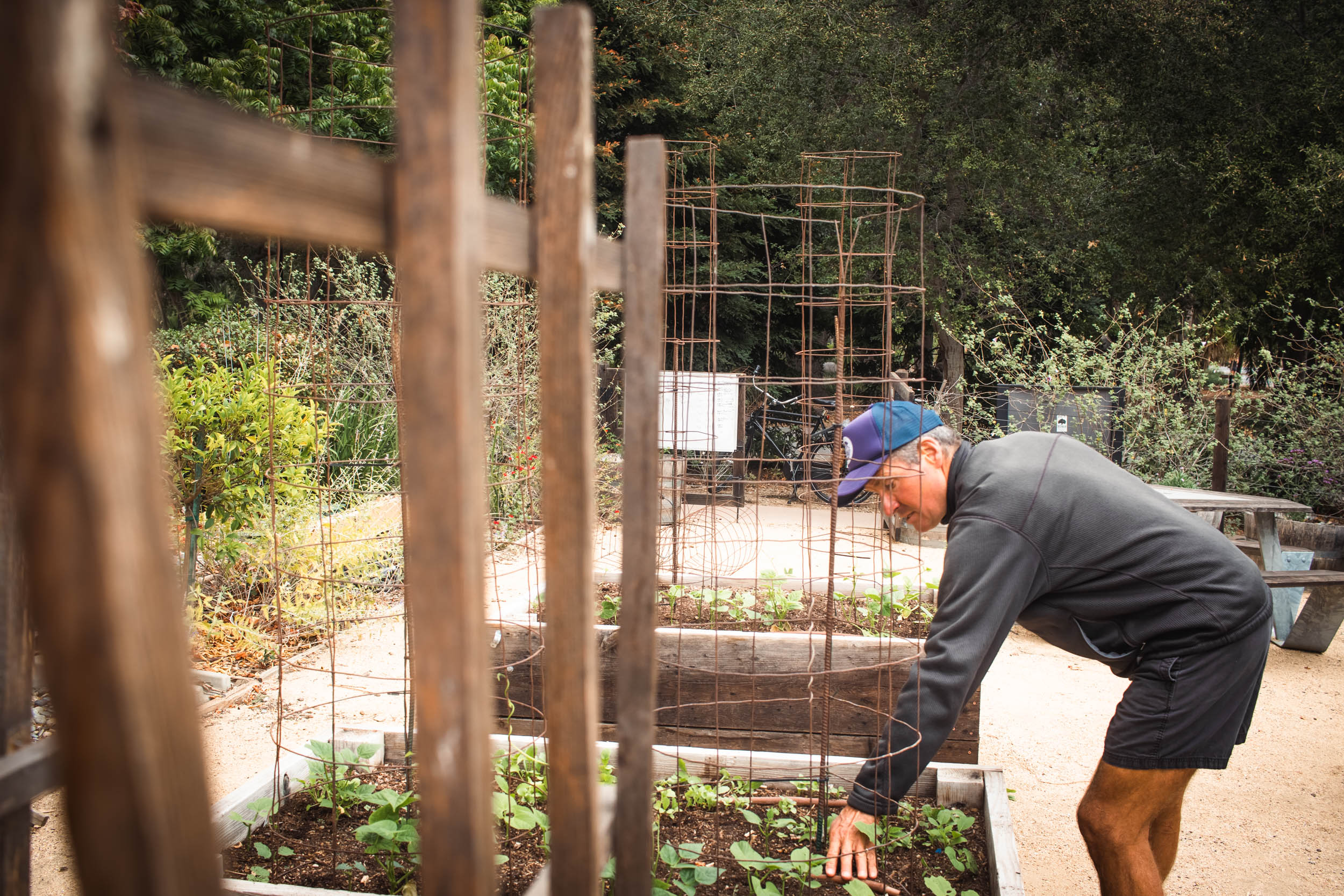
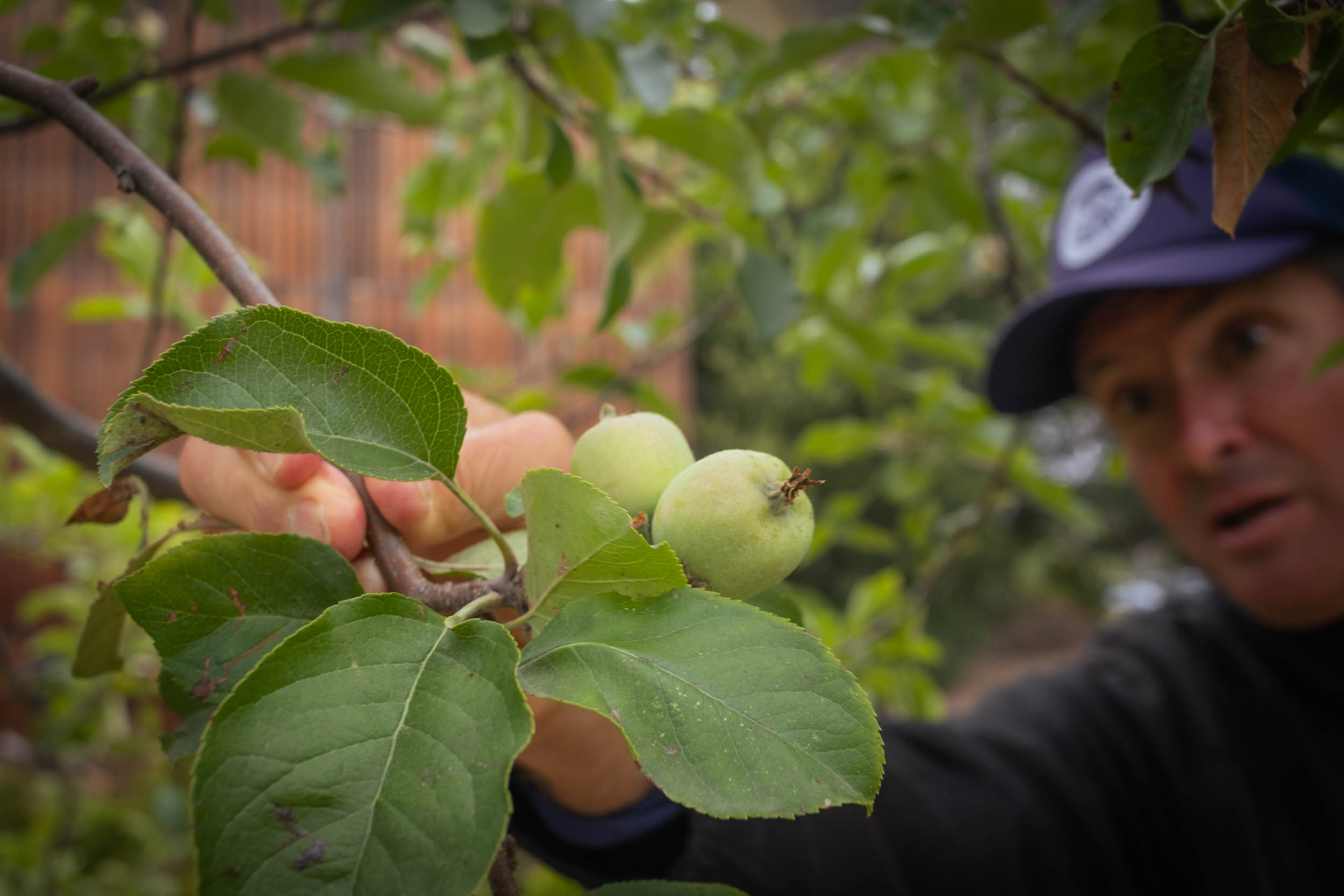
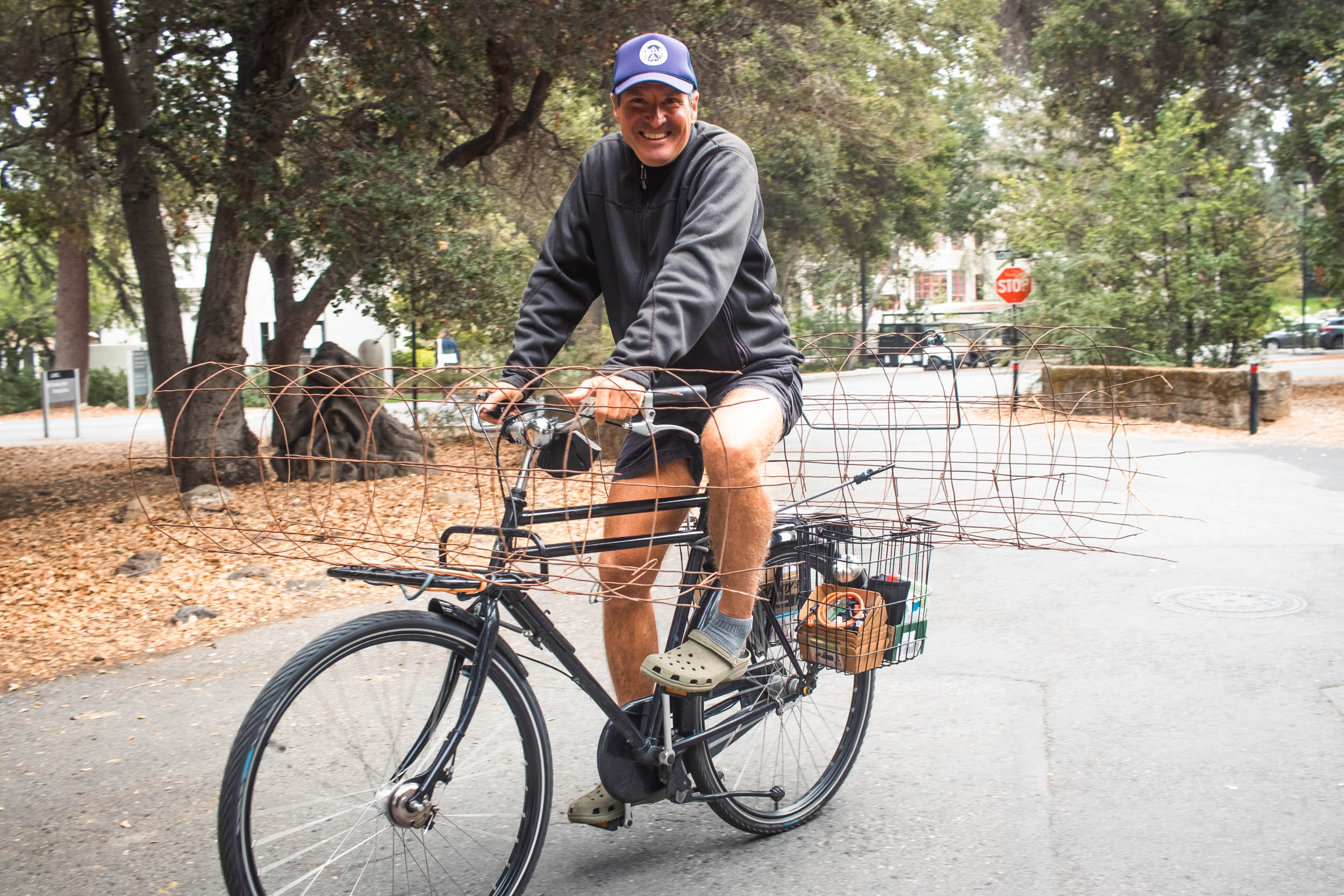
To the students who know him on campus, he’s the nice guy on his bike, day-in and day-out. He’s the guy with baskets dangling off the sides of his bike rack, sometimes filled with fruit, sometimes with boxes of seeds and sometimes empty. He’s the guy that’ll wave and offer a friendly smile just when you need one.
Schmidt has been a loyal plant connoisseur on the Stanford campus for 10 years now. No day is ever the same — there’s always something new to learn, to do and to grow. When asked what a typical week looks like, he discussed “constantly meeting with students that want help with different garden projects at different houses or dorms,” looking for projects to involve staff and faculty members and connecting with Resident Fellows across campus to start garden initiatives to engage the student body.
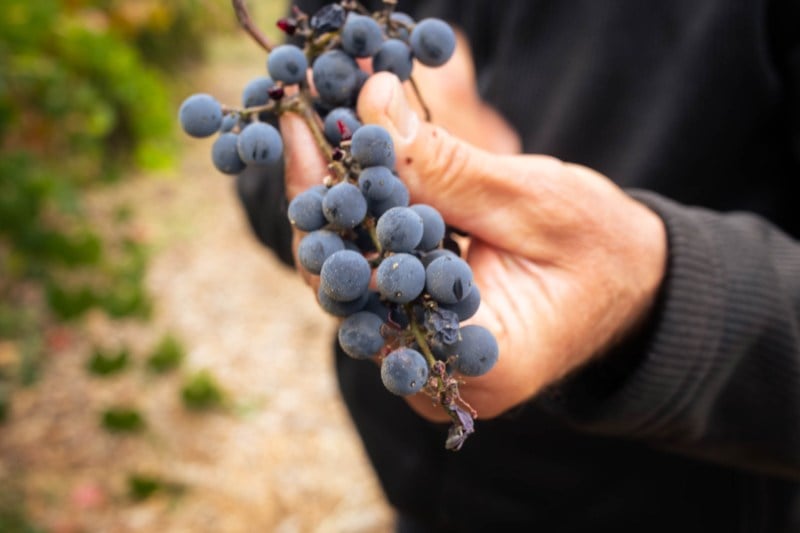
As we wandered through the garden at Oak Road, him explaining about bougainvillea and me trying not to miss the almost-invisible wire fence surrounding one particular patch of dirt, it seemed there was no end to the things we could talk about. A slight detour towards the lavender bush could sprout a conversation about herbs, meandering among dreams of pasta with fresh basil and recipes of raita with coriander and tomatoes. Passing by the yuzu tree would initiate stories of learning ikebana and ideas of traveling to Japan to study abroad.
Agricultural knowledge is a joy to consume — it gives you a sense of independence and groundedness, fragility and reassurance. We are plants ourselves, of course. Water offers nourishment, the soil brings us food and the sun pulls us off the ground. I wasn’t too successful in starting my own little garden — commitment in all shapes and sizes is a difficult thing to maintain. Schmidt passed on to me wise words from a gardener he once knew, “The best fertilizer is your shadow.” Is that true? Would my presence really encourage my seedlings to sprout and take root in foreign soil? Would my attention and care help my grades improve? Would my dedication to the people in my life bring them closer to me?
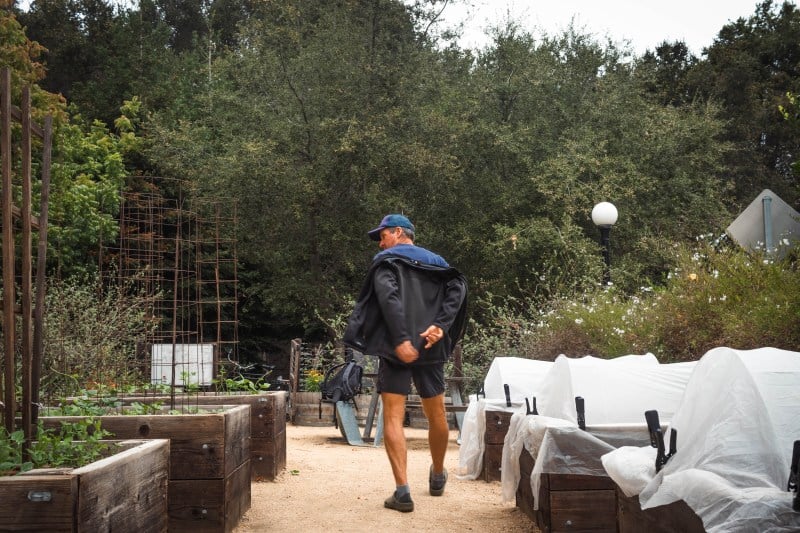
To me, Saturday gardening with Schmidt is a place I don’t have to be afraid of acceptance, all the thorns of a social life, the frustrations of watching old friendships turn to weeds and the disappointment when a precious moment wilts and dies. The reason this place is so special is that it embraces life in its purest form. Fruits, trees, flowers, leaves. They are the blood that runs through us, that fuel our brains, that support our wills to accomplish more and more each day.
As a person, Schmidt represents the true soul of Stanford’s land, a place to help people thrive, to make the world a stronger, more coexisting place for all life. Schmidt is the kindness we all need, the curiosity we should strive for and the knowledge we seek.